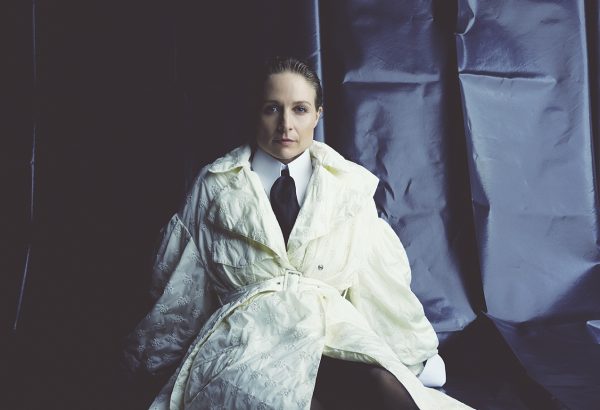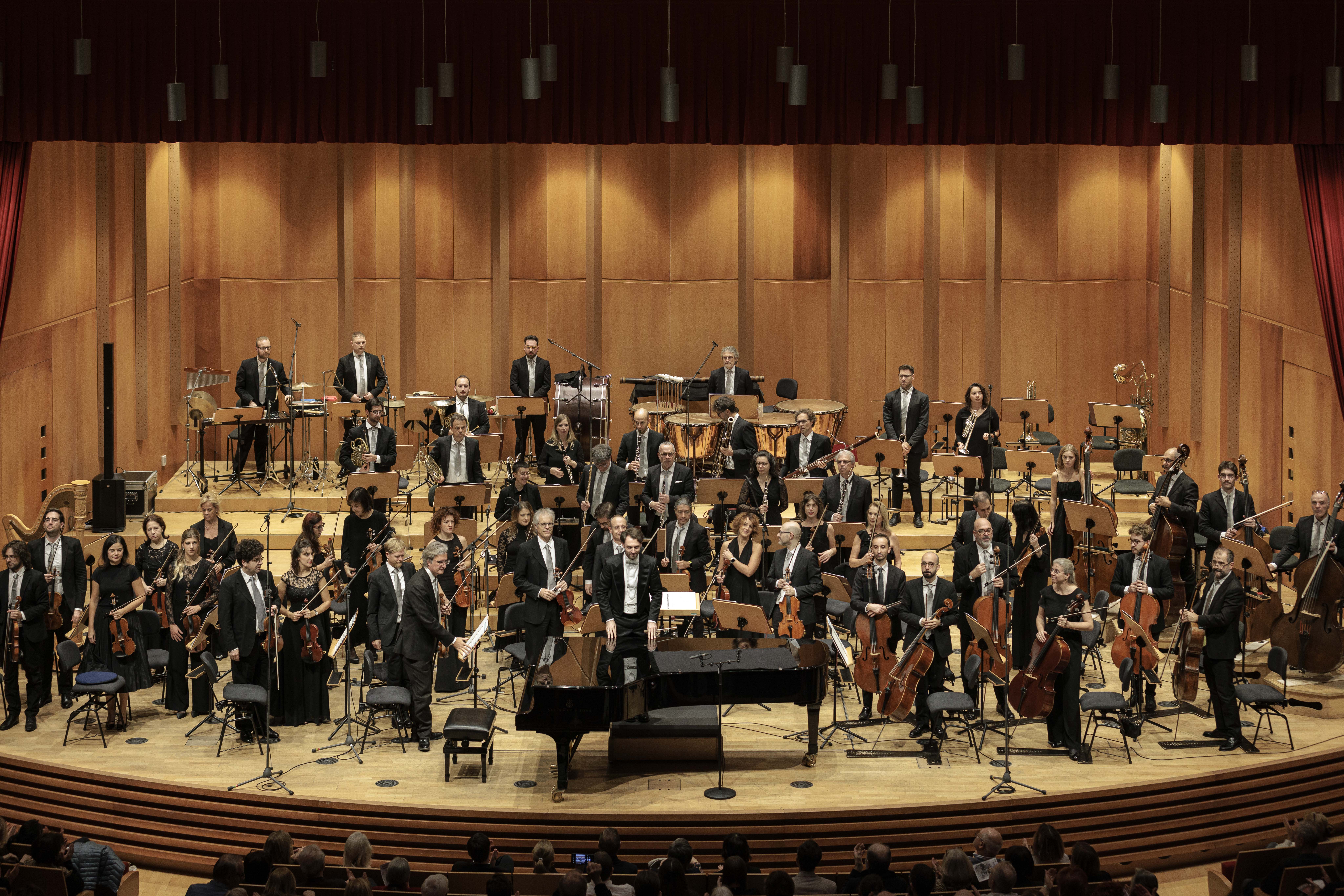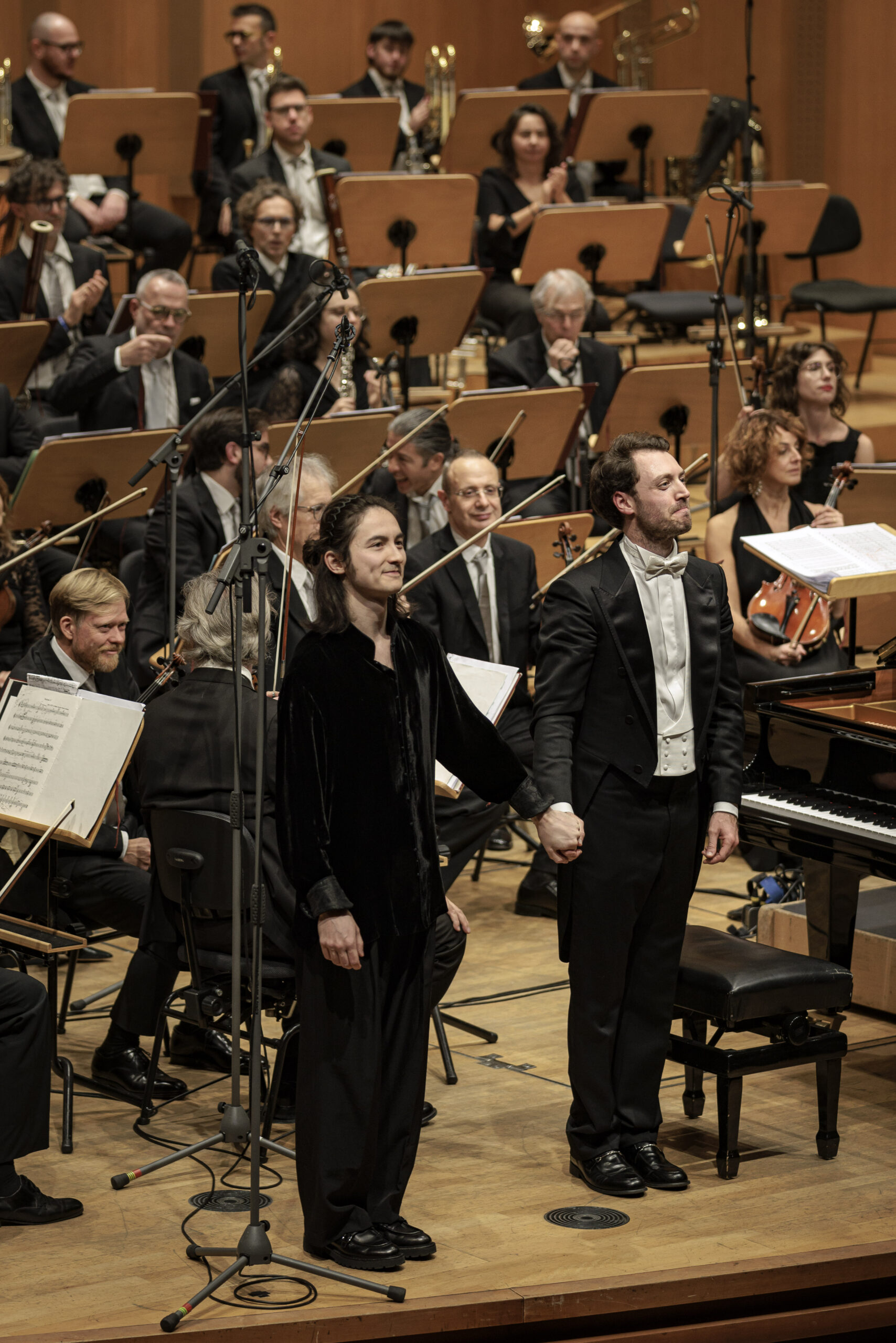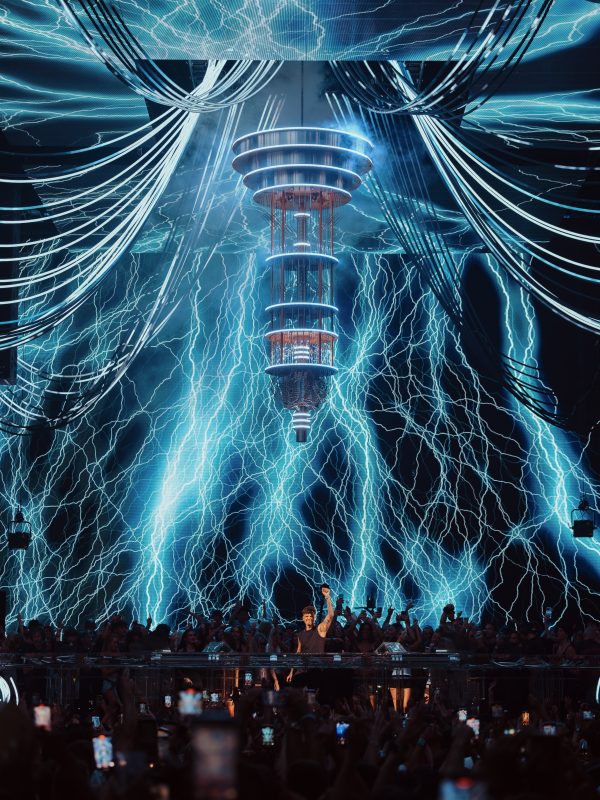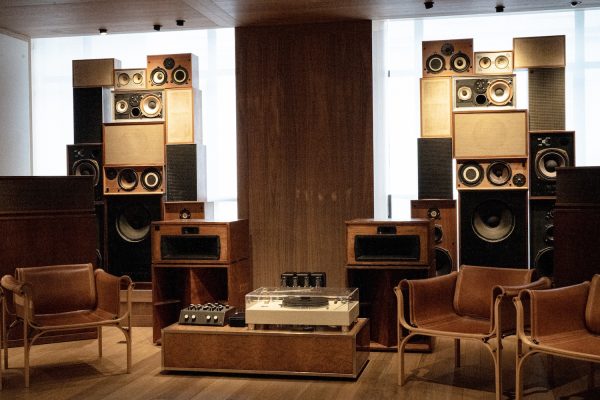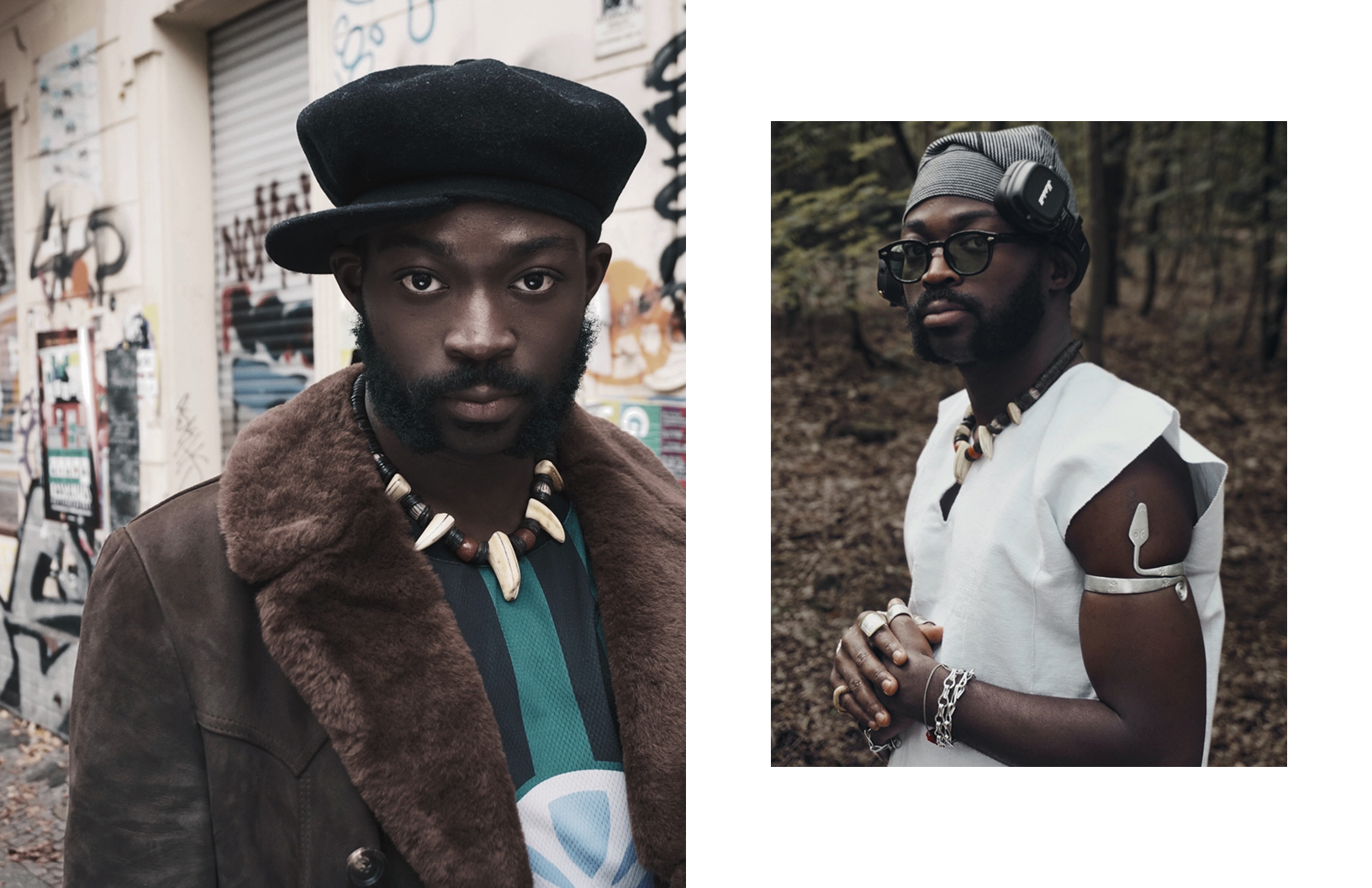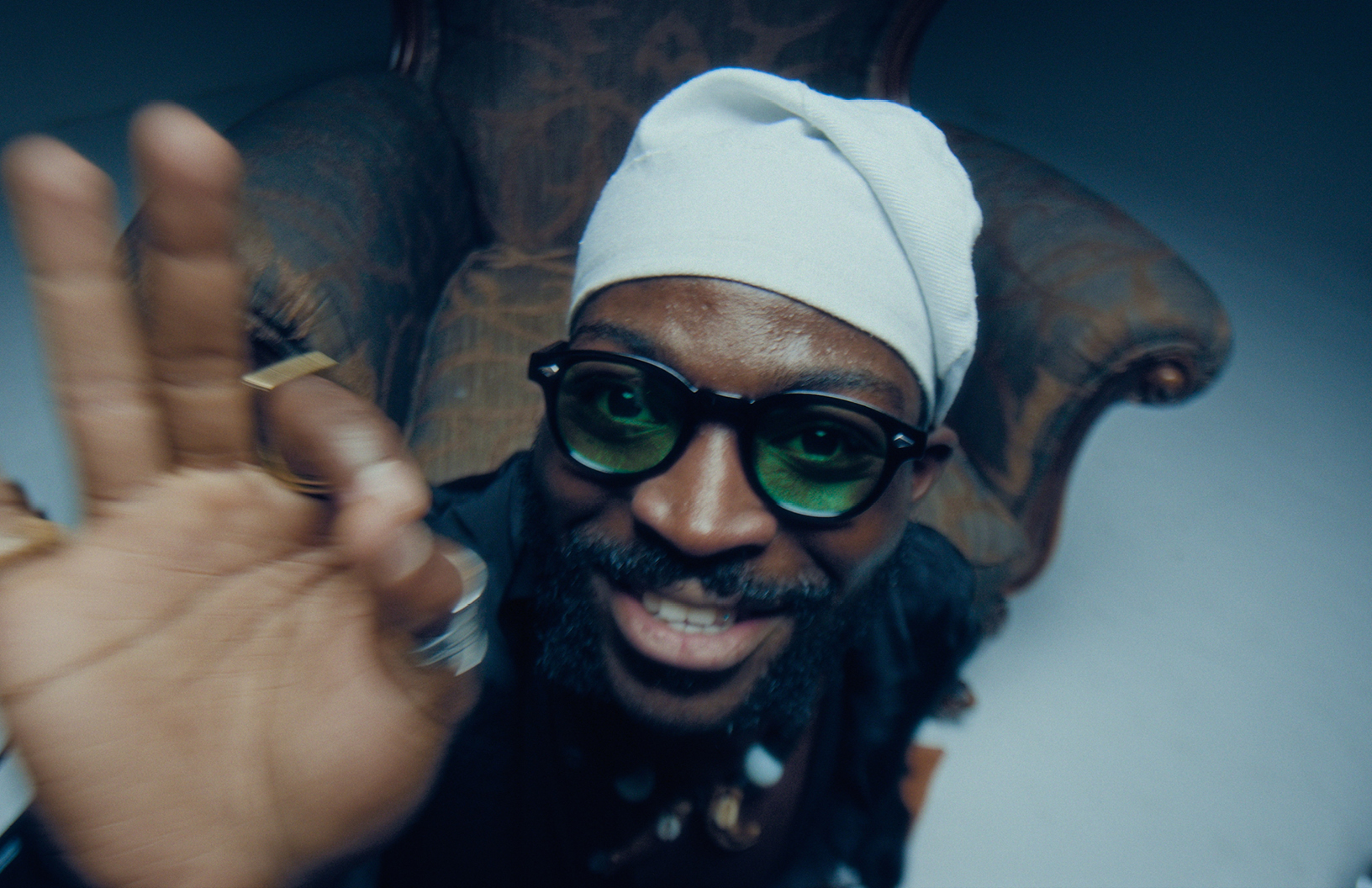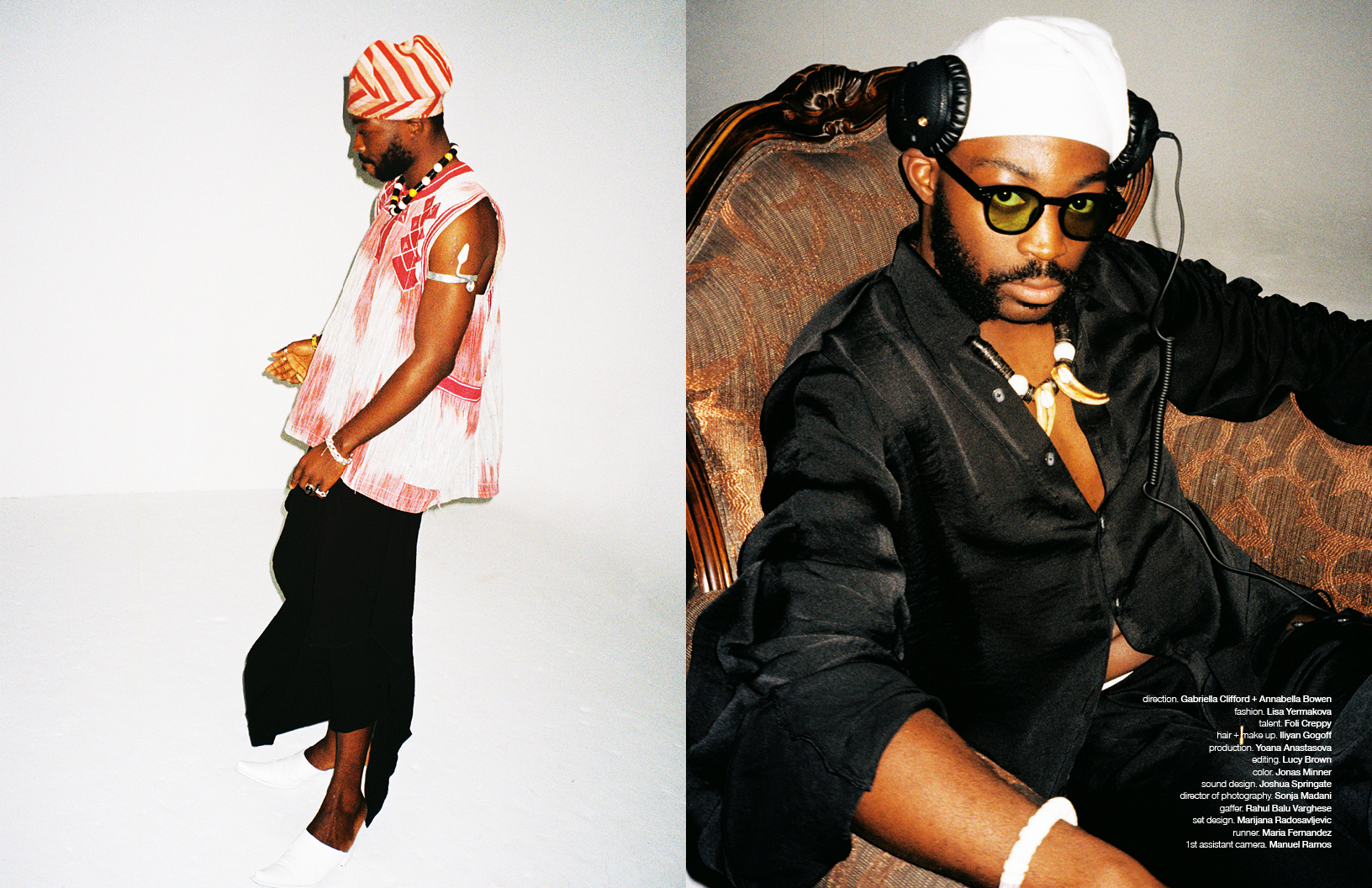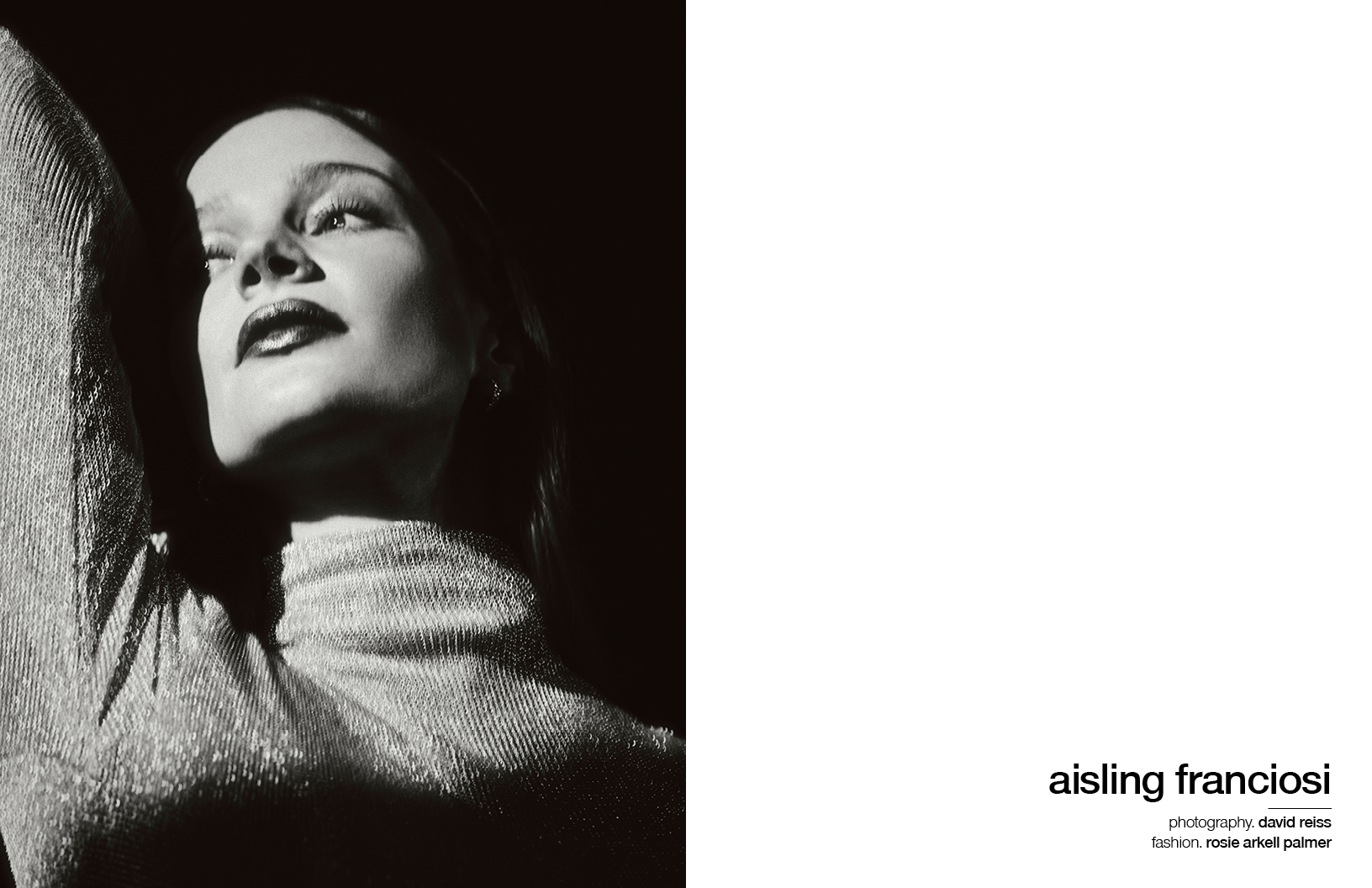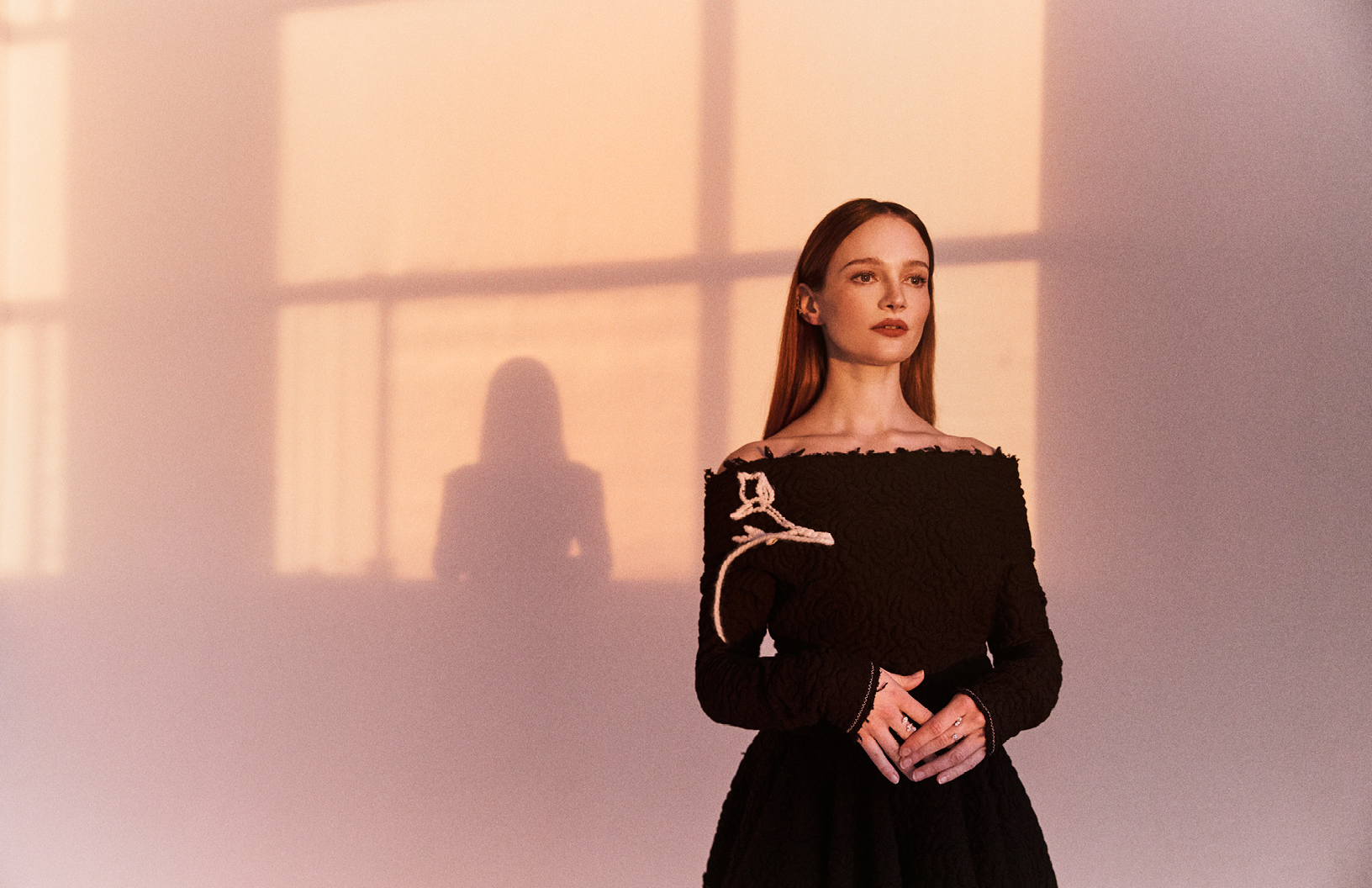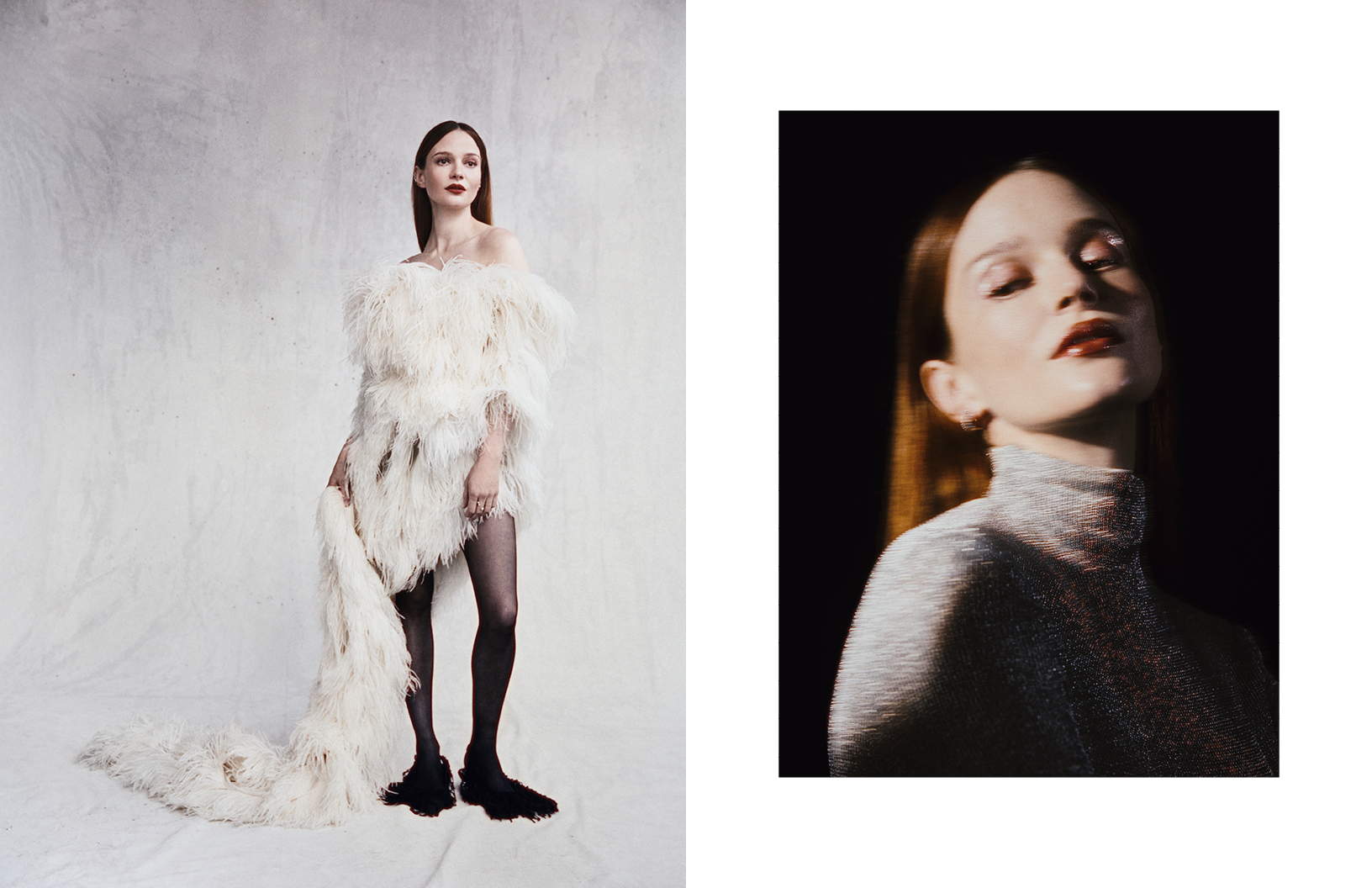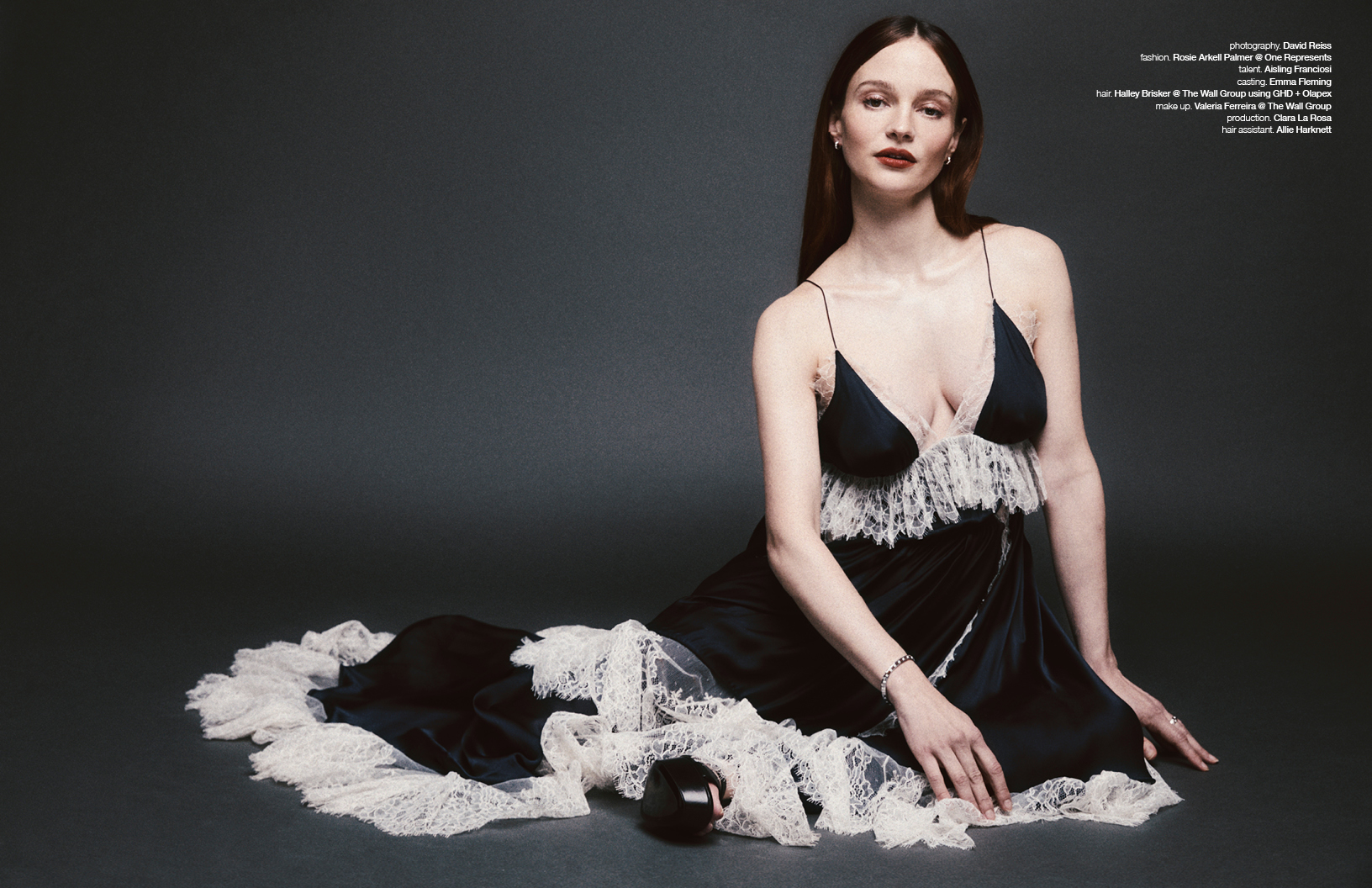No novice to small screen success, Pablo Schreiber has carved out a covetable career for himself built on back-to-back roles in iconic shows. From The Wire to Weeds to Orange Is The New Black, his choice of on-screen portrayals show us that the only calculable facet of Pablo’s career is the unpredictability of his range. Halo, the futuristic sci-fi drama based on the video game franchise of the same name, showcases Schreiber’s prowess in a whole new light, as he portrays superhero warrior Master Chief Petty Officer John-117.
Historically, Halo obscured the identity of Master Chief to broaden the personal connection that players felt with the supersoldier; however, with Pablo in command of the role, the Mjolnir-powered helmet that once concealed Master Chief’s self is removed, and the emotional dynamism between viewers and the superhero hinges on Schreiber’s delivery. Schön! sat down the actor with to discuss his views on heroism, why his trajectory is serendipitously stamped by iconic projects, and how he celebrated his recent birthday in the most perfect way.
Congratulations on this [role as Master Chief]! Historically, you’ve worked on iconic series and shows before they’re established as iconic; The Wire, Orange is the New Black, Weeds, etc. What’s unique about this role in Halo is that this is an already existing iconic franchise. What was that like for you stepping into an already established, colossal role, compared with how you prepared for previous roles?
Yeah, it’s an interesting take. I mean, a lot of what’s come before in my career, I feel like…I just feel very fortunate to have ended up in all the places that I have. To get to start so early in my career with a show like The Wire and, for the legacy that that left for me in terms of establishing a desire to work on good material, and really insist on high quality writing and starting with high quality writing — for that to be the bar that was set, I feel so lucky and fortunate to get that…
As you said, this is sort of a whole different thing where you’re coming into an established IP. There’s a whole world that’s established there before, there’s a fan base that’s established there before, [and] it comes with certain expectations and opinions of what people would like to see, how people would like to see it done. And so, it’s a very different thing, it’s a wonderful thing, you know? What an opportunity to get to play such an iconic character that is loved by so many people. And the rest of it, you can’t really worry too much about. You have to do your best to do justice to the material to how you see fit, and obviously work with your collaborators and try to fulfill their vision. But the rest you leave to fate, and I think you have to kind of — I don’t want to say ignore the outside noise, but you have to be able to stay true to your own compass and just make what you find interesting. So that’s been the process for me, is really kind of paying attention, seeing obviously the effect that this franchise has had on so many people and how loved it is feeling grateful to be involved in that, trying as hard as I can to do justice to the franchise, and to do justice to each moment within it. And then, just putting it out and letting it be what it’s going to be and not really worrying about what the reception is, or individual people and what they think.
At the end of the day, when you have a fan base of 50 million or something like that — just in sales of games alone — there’s going to be a lot of people with a lot of different opinions. And you have to understand and realise that you’re not going to be able to please everybody, that not everybody’s going to be happy. There are going to be a lot of people who are going to be happy, and you have to take those with a grain of salt as well. It’s also just such a polarising time right now. Like, it’s almost like no real middle ground. It’s either people want to just love, worship and adore something…
Or they hate you, and want you done.
Or hate it and say, it’s the worst thing ever made. And isn’t there some middle ground in there?
There used to be.
You know, isn’t there the possibility that there was a group of artists working really hard to try to make something? Some ways they succeed, some ways they don’t; that’s usually the story of almost every project, you know what I mean? There’s people behind it, who are working their hardest and trying their best. And for me, the thing that I pay attention to the most and really keep my eyes on in terms of focusing on the goal and the prize is progress, right? And all I can do is react to the things that are around me, do my best within that situation, and make sure that we’re moving in the right direction.

jacket + jeans. Levi’s
shoes. Dr. Martens
jewellery. David Yurman
opposite
jacket + jeans. Levi’s
shoes. Dr. Martens
This leads me to another question that I have for you. Because you’re playing a super warrior, or warrior with human traits, I wanted to ask you, what would you credit as your superpower in real time, or real life?
I would say… my work ethic. And also, my self-criticism, and not just for myself, but for all those working around me. I have a really high expectation of not only myself, but of my collaborators…I want to make really high-quality art. And if I’m on a show that happens to be a video game adaptation, or a sci-fi show, I’m not satisfied making a straightforward video game adaptation, or a straightforward genre sci-fi piece. If I’m making a television show, because of my past experiences, I want to make a television show that fits into the landscape of the TV that is being made now. In other words, I want to make a show that’s one of the best shows on TV. Period. And so for me, it’s about holding myself and holding all the people around me to a really high standard, and all you can do is continue to aim for those benchmarks. It’s about progress. It’s about learning the lessons along the way, about heading in a direction that moves closer and closer to where you’re trying to go. I’m happy with a lot of what came out of season one… But I’m really delighted with what we’re going to be able to do in season two. I’m already seeing scripts for season two, and they’re just amazing…So much deeper and richer and more personal and also bigger and more explosive, and gritty, and dirtier, and all the things that we did all right in season one, I think we’re really going to really succeed in season two.
As far as choices that you make with your work, how do you discern the roles that you choose? Is it really an instinct that you have about what will happen with a project? Or is it just like, “Man, I’m an actor, I love to act, so I’m just going to act”?
Yeah, it’s probably closer to the second, but not quite as general or vague as that. It’s definitely not the first. Like for me, when I choose something, I’m not looking at what I think it’s going to do or how I think it’s going to be received, because there’s just no way you can ever figure that out or make an educated guess at that. You’ll go crazy trying to do that.
I think for me, I just have to follow my instincts as an actor in what is interesting to me and what gets me excited. And usually, I have this really, really burning desire to not repeat myself, and to not do things that feel similar to stuff I’ve done before… A lot of what I do in my career is based on this kind of long game of wanting to leave behind the biggest body of work possible, and to stretch myself as an artist in as many different directions as I can and as drastically as I can… I think I have a real fear— not fear, but allergy, I guess, to routine and things staying the same and to being in the same place for long periods of time. I really love to move around and to explore not just geographically, but in myself. I don’t like to stay stagnant. I don’t like to stay the same. I think we’re constantly evolving as human beings and changing as human beings. And rather than ignore that fact, or turn away from that fact, I want to lean into that fact. And I want to change and evolve as much as I can in as many different directions as possible.

jacket + jeans. Levi’s
shoes. Dr. Martens
jewellery. David Yurman
opposite
jacket. Missoni
tshirt. Missoni
jeans. Levi’s
shoes. Converse
It sounds like a very healthy relationship with self. It sounds like you are your greatest competition, and you keep it that way.
Yeah, competition for sure, and motivator just in terms of like, I don’t want to stay stagnant… You know, one of the biggest reasons I do this job and why I’ve landed in this job, is because I want to have the biggest range of life experience possible. I want to see, touch, feel, smell, taste as much as I can in this lifetime, and one of the best ways to do that is to put myself in the skin of different people as many times as often as possible, people that are as drastically different from me as I can experience. You can say different people, but at the same time, really, that experiment is just pushing the boundaries of yourself as far as possible… It’s wanting to explore, and to learn, and to experience.
Speaking of being in the skin of two people and life experience at the same time, what would you count is your biggest personal takeaway in John’s journey and walking through John’s journey with Master Chief? What’s been your biggest personal takeaway from walking through that journey with those two connected individuals?
I’m not sure what the biggest is, but part of the takeaway is, and I guess this would coincide with a bit of my mission statement for why I wanted to do Halo, you know, why it was interesting to me. I have a lot of friends and co-creators and former collaborators who are ex-military, and I’ve done a ton of training for movies like Thirteen Hours and Den of Thieves. A lot of those people who I came into contact who helped me prepare for those roles are current former military who then went into the private sector. One of the big goals for me of taking this job was to have a discussion about what the role of the warrior is in our society today. And not just what the role is, but what the cost is of being a warrior. That coincides also with the idea of heroism, you know, and what does being a hero mean, what is the nature of heroism? And again, what is the cost, what is underneath all of that? That’s what interests me about the duality of the two characters is being able to explore that side and those sides.
You just had a birthday. Happy belated birthday!
Thank you so much.
How did you celebrate?
I’m not a huge birthday guy. I didn’t do any celebrating. It was a Tuesday, and Tuesday’s mean baseball practice for my youngest and basketball practice for my oldest. And by the time, that’s all done, it’s about 10pm and we’re cozying up. It was a perfect day in the sense that I got to be there for the people that mean the most to me. And that’s how I celebrated.
That’s always a perfect day. Okay, so getting back to Halo. My gosh, that’s a heavy looking costume! How did you physically prepare to walk around with all that added weight on you?
Just a lot of training, a lot of strength training, I have a personal trainer, and we’ve been working together for about four or five years since Den of Thieves. Just putting in the work — eating a lot of food, too — to hold the amount of muscle and the amount of weight that I wanted, to look the part, to have the kind of commanding and intimidating presence that I wanted to have, and also to be able to support the suit and stuff.
Do you do your own stunts?
You know, typically and historically, I’ve been a guy who — one of my biggest traits as an actor in pieces that have a lot of stunts is that I would always want to put my stuntman out of work. You know? The more the stunt guy was sitting on the sideline, the happier I was, because it meant that I was being effective at what I was doing. In Halo, that is absolutely not the case. It’s just impossible because of the demands of the role. There was just no way, you know? There were even days where there was three Master Chiefs on three different sets. I would be over here shooting some dialogue bit, [and] there would be a guy who was getting blown up and thrown around and tossed around, and then my wonderful stunt man, Justin, would be over somewhere else doing something.
Then there were also days where — this project more than any other, because of the physical demands of it and because of the challenges of the suit — I was more than happy to let my guy do it, with a lot of the aerial stuff and a lot of the running stuff. I have a really, really talented stunt guy who’s really good at what he does. Whereas it was in the past hard for me to find people that could do a lot of the stuff better than me, now I’ve got somebody — he’s a gymnast, and he’s highly trained. So, a lot of the aerial stuff…there’s just no way I could do the stuff he’s doing. And I’m more than happy to sit back and let him improve my stunt work.

jacket. Missoni
tank top. Hanes
opposite
jacket. Salvatore Santoro
sweater. Missoni
jeans. Levi’s
boots. Pablo’s own

jacket. Salvatore Santoro
sweater. Missoni
jeans. Levi’s
opposite
jacket. Missoni
tank top. Hanes
jeans. Levi’s
boots. Jimmy Choo
Interesting. Lastly, what do you hope that fans will take away from the show?
I mean, most importantly, I hope people are entertained. At the end of the day, we can talk all we want about the deeper levels of meaning and wanting to make something for the military community and look at the hurt and tragedy and damage that people have undergone and all of these things. We can look at it from many different point of views, but at the end of the day, I hope it’s successful at entertaining people, and especially a sci-fi audience. It’s such a big and interesting and well-drawn world, and I hope people are able to escape into it for a while and bring their minds somewhere off of this planet and into the outer reaches of their imagination. I think that would be my biggest goal. But my goals are far-reaching and far-ranging. And so… I feel constrained by saying what I hope people will be affected by in the first season, because that’s already something that has an end and a cap and a limit. And I know what’s there. What I’m really excited about is getting to go forward and make the second season and be able to put all of the lessons that we’ve learned from the first one into that and really be able to make the show that I wanted to make from the beginning in a way that I wasn’t necessarily fully able to do in the first season.

Halo is currently streaming on Paramount+.
photography. Camraface
fashion. Marc Eram @ A-Frame Agency
talent. Pablo Schreiber
grooming. Colleen Dominique @ Exclusive Artists using Han De Fuko + CIRCA 1970
lighting. Ram Gibson
photography assistant. Arta Gee
production. Early Morning Riot
location. Hot Wheels Ranch
words. Constance Victory


Schön! Magazine is now available in print at Amazon,
as ebook download + on any mobile device



















